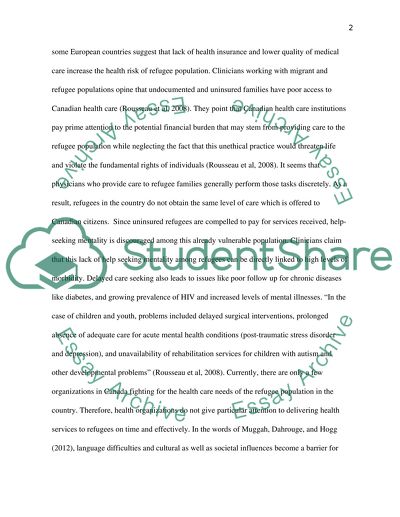Cite this document
(“Health Care of Refugees in Canada Research Paper”, n.d.)
Retrieved from https://studentshare.org/english/1472739-health-care-of-refugees-in-canada
Retrieved from https://studentshare.org/english/1472739-health-care-of-refugees-in-canada
(Health Care of Refugees in Canada Research Paper)
https://studentshare.org/english/1472739-health-care-of-refugees-in-canada.
https://studentshare.org/english/1472739-health-care-of-refugees-in-canada.
“Health Care of Refugees in Canada Research Paper”, n.d. https://studentshare.org/english/1472739-health-care-of-refugees-in-canada.


